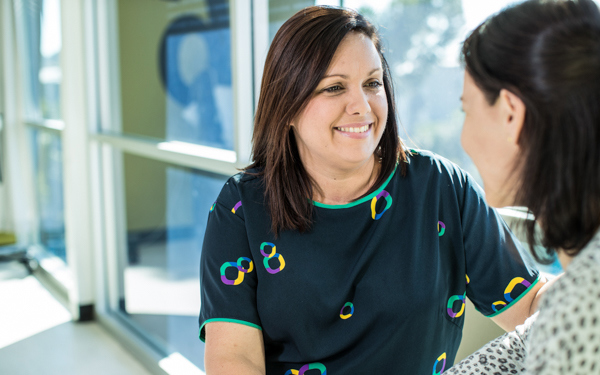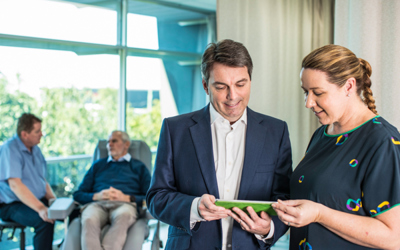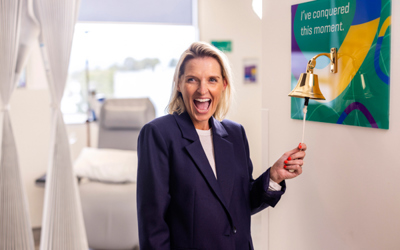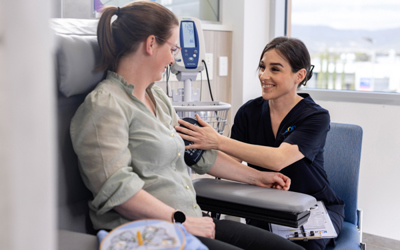Understanding genetic testing and how a genetic counsellor can help
Genetic testing is an important way that people with a diagnosis of cancer can understand the role of genetics in their diagnosis.
Certain types of cancer such as breast, ovarian, pancreatic, prostate, bowel and endometrial cancers may be caused by genetic variants that increase the risk of developing these cancers. For example, women who have inherited a variant form of the BRCA1 or BRCA2 gene have a lifetime risk of developing breast cancer of around 70%, compared to the 12% risk faced by women in the general population.
Genetic testing involves the testing of a person’s genes to identify if they are at a higher risk of certain cancers. The process generally begins with sequencing the DNA of a person who has been diagnosed with cancer to look for genetic variants or ‘spelling mistakes’. If a gene variant is found which explains the person’s diagnosis of cancer, their relatives can have genetic testing to see if they have inherited it also. For people who have not yet had a cancer this is called predictive testing, because it can predict future cancer risk, enabling a person to take preventative action, such as undergoing special cancer screening tests, or having preventative surgery.
Before you undergo genetic testing, you will need to meet with a specialist healthcare professional known as a genetic counsellor. A doctor’s referral is not required to access genetic counselling services and referrals can be made by patients, carers or healthcare professionals.
Pre-test counselling includes:
Documenting your personal and family history of cancer in detail
Discussion on the different types of genetic tests available, their accuracy and the possible outcomes of testing
How you could benefit from genetic testing
An outline of available medical treatments once you receive your test result
The emotional and psychological impact of genetic testing and the results
Risks associated with passing on the altered gene to your children
Based on your assessment, your genetic counsellor will advise you as to the type of genetic testing that may be appropriate for you, whether you qualify for Medicare-funded genetic testing, and your options for self-funded testing if not.
If you elect to undergo genetic testing, your genetic counsellor will support you through the process, discuss your results with you and explain what they mean for you and your family.
Genetic counselling at Icon
At Icon, we are committed to delivering exceptional cancer care for our local community. We believe that genetic counselling services are an integral part of supporting cancer patients and their families.
Our team can support you to meet with a genetic counsellor and access genetic testing.
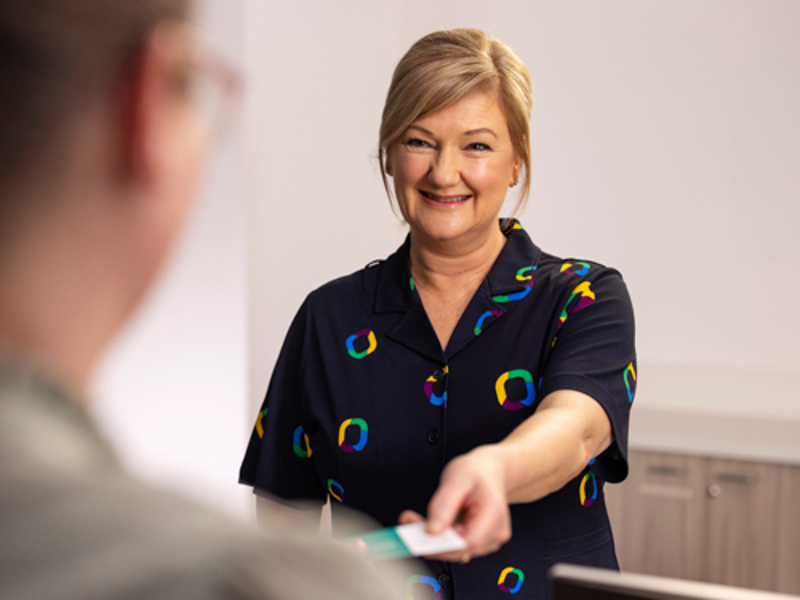
Icon Cancer Centre Hobart is proud to offer a dedicated private genetic counselling service within their centre.
The content on the Icon Cancer Centre website is for informational purposes only and should not be considered medical advice. It is not a substitute for consultation with a qualified medical practitioner. For personalised medical guidance, please consult with your GP or another qualified healthcare provider.


